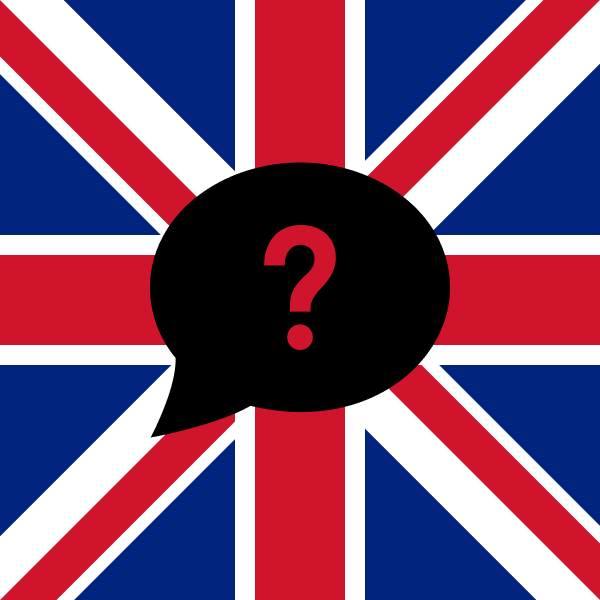For example, switching out the word ‘boot’ for ‘trunk’, or ditching the word ‘rubbish’ for ‘garbage’.
This is something I’ve noticed my 6 year old does pretty regularly. We went through a stage where ‘sweets’ became ‘candy’, ‘holiday’ became ‘vacation’ and ‘courgette’ became ‘zucchini’.
That last one didn’t happen but if you’re still reading you’ve got my respect, or as the Americans might say ‘…mad props’.
I like “garbage” when insulting something, it just has a nice guttural sound.
Garbage and trash are excellent American words. Much better than “rubbish”
I said “gen zed” the other day and everybody frowned and said “Don’t you mean gen zee?”. NO I FUCKING DON’T. Still fighting the good fight in pronouncing schedule with a soft sh but I think I’m in a small minority these days. I’ve given up trying to call it an aubergine emoji, we may as well accept it’s an eggplant now 🍆
English is my second language and I despise zee, it gets confused with cee. Zed is objectively superior
You know, I don’t think I’ve ever heard an American say “Gen Z” before, and it literally never occured to me that they were pronouncing it “Gen Zee”. Obvious now you mention it, but I’ve just been assuming that every time I see it written down it’s “Gen Zed” by default.
My friends were the opposite, they accepted that Z is pronounced Zed, but they said that gen zee was different, because “it’s like ZZ Top”. I argued back that it’s not like ZZ Top, it’s just a letter assigned to a generation. They were so used to hearing it said by Americans on TikTok, they refused to even accept that a normal person would say gen zed. “It’s just gen zee though! Nobody says gen zed!”. I’m angry again thinking about it!
I’d argue it’s a proper noun which happens to be a letter long rather than a letter assigned to a generation
That said I believe the correct term is Zoomer which resolves this issue
Schedule, yes! We’re very much in the minority on that one, but I’ll keep on using it the right way, even if it doesn’t seem to make sense when looking at other words like school.
It’s never occurred to me it could be pronounced “gen zee”.
I’m hellbent on being a relic. Currently railing against the proliferation of “store”. SHOP ffs. I look forward to everyone going storing.
I’m old enough to mostly have a British vocabulary. And, although I did live in Yanklandia for a year I seem to have come out relatively unscathed.
My kids (who watch too much Youtube) use a lot of American words and pronunciations. It’s an ongoing struggle to get my daughter to say tom-ah-to.
Just wait till she’s having taters
Tomato, tom-ah-to. Potato, poh-ta-to.
I’m American but would really appreciate it if aubergine caught on here across the pond. I know it’s French (and from prior languages) but I commend the UK for sticking with it. In contrast, eggplant sounds so crude and unappetizing. If you’ve Americanized this one, please stop.
Also, we should all bring back a few Old English terms.
What I hate about “eggplant” is that none of the varieties that anybody actually eats look even remotely like an egg. It’s a massive purple banana-shape. They also don’t taste like eggs, smell like eggs, or get used like eggs.
It’d be like calling cucumbers “cheesefruit” or something. It’s just destined to baffle.
It looks like eggs in an early stage of development, but aubergine is a way better word nonetheless
Call it what you like, it’s an F tier veggie
No way man, it’s a great vehicle for flavor. Soak the slices in a basil balsamic garlic marinade a for an hour then roast them in the oven, simple and delicious.
To each their own garbage
Rubbish*
I use often use “movies” and “TV shows” instead of “films” and “telly series” and I am mildily disappointed with myself.
I feel I should use the Old English Fall instead of the French Autumn but it seems a step too far. Perhaps I could use Harvest.
I seem to use movie when describing the blockbuster/B-movie end of the scale, and film when talking about a quality bit of cinema. But I also am more likely to call a US flick a movie and a Brit one a film.
I like the sound of the word autumn, and particularly autumnal. I can see those reds and browns and feel the crisp air. Fall does give more opportunity for puns and easier rhymes, I guess.
I’ve gone the opposite way - I’ve been replacing my American pronunciations with the British ones, like leverage starts with lee, like in lever, and that (software) patent starts with pat not pait.
I think it’s in response to my younger friends and colleagues sounding, to my ears, increasing American - they say gotten, zee, and on accident (things that are often more consistent, but just not
cricketBritish). I’m old enough to remember the sound of dual up, so I probably wasn’t as exposed to US media growing up.Please correct your child. Next thing you know he’ll be defending the second ammendment and voting for trump
Don’t worry. If she’s anything like her Father she’ll be more interested in Eugene Debs than Donald Trump.
I noticed in Wallace & Gromit: Curse of the Were-Rabbit, Gromit cares for a vegetable in his garden that they either call a ‘marrow’ in British English or ‘melon’ in the localized American export of the film.
“How’s that marrow/melon of yours coming on?” -Wallace
“Are you in a rental?” That turns up so much that I’m struggling with the proper way. Do you rent? Are you a tenant? Do you have a landlord?
“Do you rent?” is usually the way people say it in the US.
switching out the word ‘boot’ for ‘trunk’
What’s the context of trunk there? Tree trunk? Car trunk?
Car trunk
What’s a tree boot?
Does your wee one watch a lot of American-voiced videos on YouTube or similar?
She used to. We’ve put a stop to YouTube though because she turns into a little demon after watching it.
I quite like shop in the sense of workshop, and I also rather like y’all.
I also often refer to whisky as scotch, though I feel like that is as much about making myself understood.
Y’all is great, but I can’t use it without sounding like I’m taking the piss.
Aren’t scotch and whiskey two different things? In a rectangle/square sense
Scotch is whisky from Scotland (shockingly).
That’s not an Americanism really; people call it Scotch in British English too. It’s just that because 99% of the whisky in the UK is Scotch anyway you don’t really need to specify. Whereas because most whisky consumed in the US is bourbon, they tend to specify when they mean Scotch.
The same is presumably true in reverse, i.e. Brits using “bourbon” more than Americans because of the need to specify.
Personally I’m not bothered by the whisky/whiskey distinction. Whisky was traditionally Scottish and whiskey Irish, with the Americans going the Irish way and other countries (like Japan) going the Scottish way. But it’s a bit of a meme to nitpick at this point; they’re indisputably just two spellings of the same thing.
That’s more along the lines of what I was thinking. I could never tell the difference between the taste of any distinctions
Once you’ve got your eye in, scotch and bourbon are quite different. Many (although not all) scotch whiskies have peat in their flavour profile (a kind of smoky, salty, earthy flavour which is very distinctive), while bourbons never do. Bourbon is almost always quite a lot sweeter than scotch.
They’re also made quite differently. Bourbon is mostly corn, and often has lots of rye and wheat in the mix, whereas scotch is mostly made of barley. Bourbon is always aged in new oak barrels, whereas scotch is mostly aged in second-fill barrels (which might previously have been used for bourbon, wine, sherry, port, cider etc.).
Even in my college days I was just never been able to get past the poison taste of ethanol to get to the good stuff that differentiates the flavors
I’m in Australia now and it’s zucchini and eggplant here, though in general words are much more like British English. No idea what’s going on with the pronunciation of “cache” here though - I work in tech and it’s mental how they say that. Like, Brits and Yanks are in full agreement about that word.
I’m Australian and it’s always been zucchini and eggplant.
I don’t know what’s wrong with the way we say cache though. How do you pronounce it?
It’s supposed to be pronounced as “cash” or “kaysh”. Americans often pronounce it as cachet (ie. “ka-SHAY”), which is a different word with a different meaning. Needless homophone that introduces confusion.
I’m guessing that’s been picked up by Australia in recent years, but not when I still lived there.
I’m American and I’ve only ever heard it pronounced like “cash”, whether that’s someone speaking or in tv/movies.
It’s not a very popular word and most of the times I’ve heard it is on the topic of geocaching.
Yeah I’m a cash person along with everyone I know.
I have heard cashay though.
But I prounce sachet as satchet-et so I’m all over the show.
I was gonna say, no self-respecting six-year-old wants to even consider zucchini.










